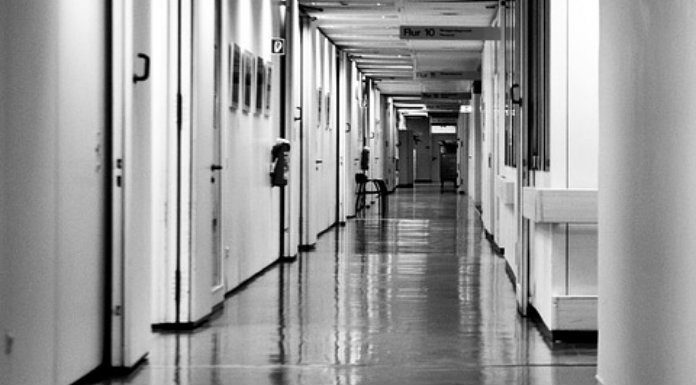The Health Minister has come under criticism, over his comments on unopened hospital beds in the Midwest.
Simon Harris yesterday announced that 190 beds will be opened in EDs across the country, 15 of those in St john’s Hospital in Limerick.
These beds have remained closed, as chronic levels of overcrowding persisted in Dooradoyle, something he’s said is “inexcusable”, but this has been seen by some as passing the buck.
Speaking at yesterday’s Oireachtas Health Committee meeting, the Health Minister announced that 190 beds would be opened to alleviate pressure in hospitals, 15 of them at Limerick’s St. John’s Hospital.
It came after the HSE put a call out to hospital groups for spare capacity.
At. St. John’s, these beds are understood to have been idle for some time, due to what the UL Hospitals Group has described as the “challenge” in securing consultants to replace two that had retired earlier this year.
Minister Simon Harris says he finds that inexcusable.
But there’s been criticism for the Minister himself.
Clare member of the HSE’s Regional Health Forum West, Kilkee Fianna Fáil Councillor Cillian Murphy, insists that the buck ultimately stops with Simon Harris.
Clare’s Independent TD, meanwhile, has accused the Health Minister of passing the buck.
Michael Harty says Simon Harris does have a point, but he believes the manner of his remarks was quite stark.
In a statement to Clare FM, the UL Hospitals Group has welcomed the announcement of funding for the 15 new beds.
Until now, they say, their ability to transfer patients to St. John’s has been impacted by a number of factors, including the retirement of two senior consultants, as well as older infrastructure and medical manpower issues.
Statement from the UL Hospitals Group
UL Hospitals Group is committed to implementing the provisions of the consultant contract in relation to management of private practice across the hospital group.
Ireland has a unique and complex health system in which consultants have private patient treatment rights under their contract.
This poses a number of challenges for the public hospital system. The various consultant contracts contain different elements relating to total activity levels and the public/private split can be up to 70:30.
However, it should further be noted that these contracts include a number of Buckley Category I contracts which are not definitive on meeting set public/private ratios but rather relate to the proportion of activity based on bed designation.
There are also some historical elements in some contracts which affect this public/private split. The complexity of reporting on contract compliance is also acknowledged by all stakeholders (see below).
UL Hospitals Group is in a unique position and – unlike in Dublin, Cork or Galway – there is no private hospital in the MidWest capable of servicing the demands of insured patients or in which consultants may undertake private work in a separate environment to the public hospital.
An added complication in managing contract compliance is the relatively high proportion of emergency admissions at UHL compared to similar hospitals, including insured patients.
In 2018 UL Hospitals completed an internal audit to ensure that responsibilities at every level are discharged in line with relevant legislation and contractual provisions of Consultant Contract 2008. The audit focused on management of consultants’ contracts; agreed work practice plans which clearly identify activities appropriate to specialty; methods for measurement and verification of public/private activity; the process in place for non-compliance with agreed private practice ratios etc.
Ten recommendations were made as a result of this audit, of which eight have been implemented/closed. This year, a new internal audit process is following up on these recommendations.
The majority of consultant physicians working within UL Hospital Groups have commitments to other hospitals apart from University Hospital Limerick. These include consultant geriatricians who are working in the Community Hospital of the Assumption Thurles, St Camillus Hospital, Limerick and St Ita’s in Newcastle West.
In addition consultants see outpatients in clinics in various specialties across our model 2 hospitals. A new OPD department planned at an offsite location in Ennis Hospital will increase the number of clinics in County Clare.
In recent months, our ability to transfer patients from UHL to St John’s Hospital has been impacted by a number of factors, including the retirement of two senior consultants earlier this year. Other factors at St John’s have included criteria based around the Small Hospitals Framework; older infrastructure and nightingale wards; difficulty managing patients with IP&C issues due to lack of single rooms and medical manpower issues where a critical mass of consultants does not enable cross-site cover at this time.
However, we are pleased that the Minister for Health has recently approved plans submitted in recent weeks to develop a Clinical Recovery and Support Unit, with a full multidisciplinary team, at St John’s Hospital.
This will facilitate the transfer of patients with complex care needs from UHL to St John’s and will help free up capacity at UHL. This model has been running at Nenagh Hospital since earlier this year with benefits to patients and improvements in discharges.
Recruitment of the multidisciplinary team, including a consultant and a registrar, is underway and we plan to have the CRSU in St John’s up and running in the coming weeks.









